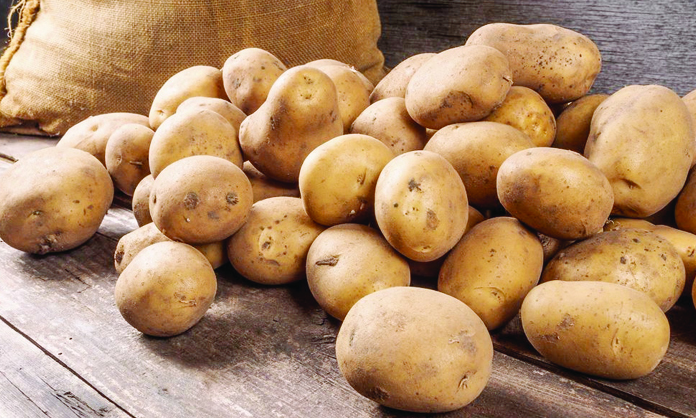The Namibian Agronomic Board (NAB) is encouraging farmers in the country to grow more potatoes to reduce the annual N$138 million import bill for the staple crop.
This was said by NAB spokesperson Fabian Auguste, while explaining the rationale behind keeping the border open for the importation of potatoes throughout the year.
He said for the second month running, potatoes and lettuce have been the only horticultural products open for importation into the country without restrictions.
According to a notice to horticultural traders issued by NAB chief executive officer Fidelis Mwazi dated 19 January, the border will only be open for the importation of potato washed and lettuce (iceberg) without restrictions except for the 47% Market Share Promotion (MSP) for the period 1-29 February.
“Most other crops are produced in sufficient quantities locally. We advocate an increase in local potato production due to its constant demand,” Auguste said.
She said the country produces 35% of its potato requirements and has to import 65% of Namibia’s vegetable of choice, which finds use in making chips, salads, mashed potatoes and more.
The border was also only open for the importation without restrictions of the two crops from 1-31 January.
According to Mwazi, the restrictions are in line with the Agronomic Industry Act and the Namibian Horticulture MSP Scheme rules and regulations to protect Namibia’s nascent horticultural sector from competition from cheap imports and to help the industry grow.
Mwazi said where shortfalls are anticipated, pro-rata imports will be implemented for those special controlled products.
“In line with this, 30% importation of all types and sizes of round tomatoes, except for exclusions, will be allowed, while 40% importation of all types and sizes of watermelon and 50% importation of all types and sizes of sweet potatoes will be allowed,” said Mwazi.
The border will be closed for the month of February for the importation of beetroot, butternut, cabbage, carrot, English cucumber, coloured pepper, green pepper, gem squash and onion.
Also on the list of barred imports are pumpkin, jam tomato, cocktail/cherry/mini plum tomato, watermelon, sweet corn and spinach, except for exclusions.
Auguste said during the rainy season, lettuce is affected by issues such as waterlogging and occasional heat waves resulting in reduced production levels, as well as quality issues resulting in the need to supplement the domestic supply with imports.
In an effort to encourage local farmers to grow potatoes, the National Association of Horticultural Producers (Nahop) has started an initiative to train small-scale farmers to grow potatoes.
According to Nahop spokesperson Lesley Losper, the response to the initiative has been overwhelming as they are getting enquiries beyond expectations.
“We did not anticipate to get such large numbers and we might have to extend the programme beyond the initial 15 centres. The idea is to teach farmers that they can also grow potatoes, even at household level, to reduce pressure on the national supply chain,” he said.
Losper said Nahop had also initiated a programme through which farmers can acquire a minimum of 25kg potato cultivars (seed tubers) through the association. – email: matthew@namibian.com.na
Stay informed with The Namibian – your source for credible journalism. Get in-depth reporting and opinions for
only N$85 a month. Invest in journalism, invest in democracy –
Subscribe Now!






